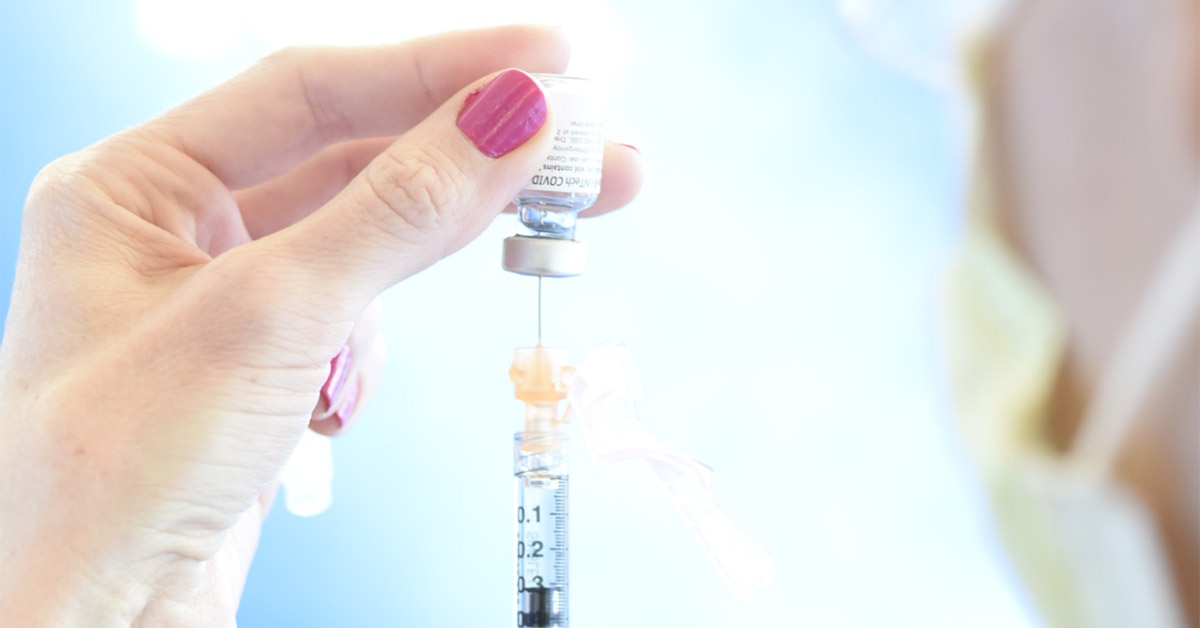
Five Questions About mRNA Vaccines, Answered
-
New approaches using mRNA as vaccines have led to the rapid development of two safe and highly effective vaccines for COVID-19. But if you’re wondering how it all works, well, you’re not alone. Although scientists have been studying mRNA vaccines for more than a decade, these types of immunizations are brand new to the general public—and it’s normal to have some questions.
Here are answers to some of the things you might be curious about.
What are mRNA vaccines and how do they work?
All vaccines work by triggering the body’s immune system to build up protective antibodies against a bacteria or virus without actually making you sick. Most traditional vaccines rely on a weakened or inactivated form of the agent to trigger this immune response.
Messenger RNA vaccines, or mRNA vaccines, are different. “mRNA works like a recipe,” explained Glenn Rall, PhD, Chief Academic Officer at Fox Chase Cancer Center. “It delivers instructions that teach the body’s cells how to make an immune-stimulating protein, which triggers the development of antibodies that keep a germ from making you sick.”
mRNA vaccines are injected into the upper arm like most traditional vaccines. A lipid droplet delivers the mRNA to cells, which pick up the mRNA’s instructions for making the protein.
These mRNAs tell the body’s cells how to make a spike protein, one of the same proteins found on the surface of the virus that causes COVID-19. “That spike protein will then be released and your immune response will be generated,” Rall said. “And that immune response is what’s going to be providing you protection in case you encounter the actual virus out in the real world.”
How were mRNA vaccines developed?
Though most of us learned about mRNA from COVID-19, “this wasn’t something scientists conceived of when the pandemic began,” Rall said. Researchers have been studying mRNA vaccines for flu, Zika, rabies, and other infections for many years. mRNA technology has even played a role in the development of certain cancer treatments.
With the basic mRNA technology already in place, experts could quickly adapt that technology to develop vaccines aimed at COVID-19 as soon as the necessary information about the coronavirus had been gathered.
Do mRNA vaccines affect a person’s DNA?
No. mRNA doesn’t go near the part of the cell where DNA is kept. And it doesn’t stick around in the body for long. “It degrades within 24 to 48 hours after the injection,” Rall explained. “It’s just going to be the match that lights the fire that ultimately results in a protective host immune response on your behalf.”
Can mRNA vaccines give me COVID-19?
No. mRNA vaccines don’t actually contain the virus that causes COVID-19, so they can’t infect you. That said, it’s normal to experience body aches or a low-grade fever shortly after getting vaccinated. These are signs that your body is launching a protective immune response—and that the vaccine is doing its job. “It might be frustrating and disruptive,” Rall said. “But it goes away in the vast majority of vaccine recipients in a day or so.”
Are the COVID-19 mRNA vaccines safe?
Yes. mRNA vaccines work differently than the immunizations many of us are used to. But they were developed precisely because they were considered to be safer than other existing vaccine strategies. Rigorous clinical trials and the FDA authorization process have confirmed both their safety and efficacy. “In terms of safety and efficacy, these vaccines are hard to beat,” Rall said.
